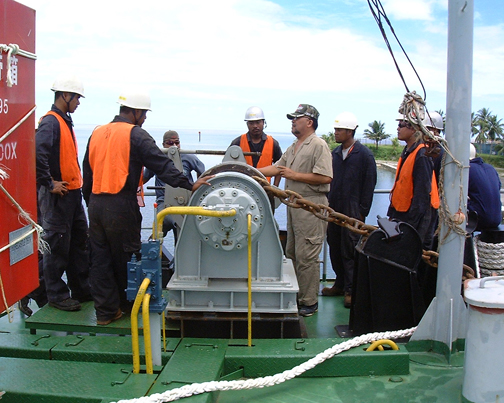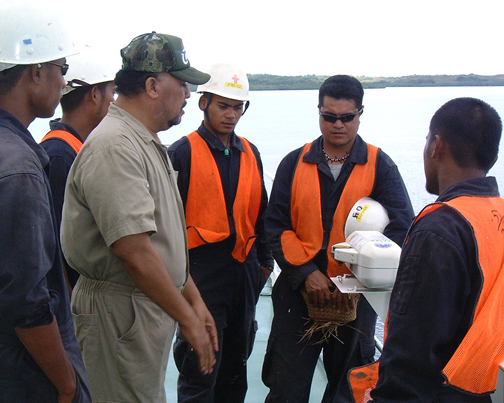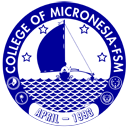FSM-FMI Sending Students for Shipboard Training
GAGIL, Yap (August 27, 2012) - The FSM Fisheries and Maritime Institute is currently running two shipboard training schemes for its students. One scheme places students on interisland vessels and the other on foreign vessels.


Students board the Yap State ship M.V. Hapilmogol during field trips where they receive practical training while they are still attending FSM-FMI. The students’ experiences during the inter-island trade routes count toward their licensing requirements. FSM-FMI graduates also board international vessels such as the Kyowa Line and Matson to gain experience on foreign shipping routes as well as ways and practices of foreign ports visited in order for them to meet the requirements for licensing. Graduates also take the opportunity to gain further studies in the Republic of Fiji as well as in the British Commonwealth countries such as Papua New Guinea, Australia and New Zealand.
According to FSM-FMI Director Mathias Ewarmai, four slots are available per year for FMI graduates with the two international shipping companies. He said the four slots are not enough to accommodate the number of students graduating from FMI. Director Ewarmai is working with the Micronesian Shipping Commission to enlist the assistance of other shipping lines under the entry assurance scheme to receive more students per year.
Last March 2012, the graduating class of 2012 went on the M.V. Hapilmogol for their one-month interisland shipboard training. The trip took them through the Yap neighboring islands and returned them to Yap in time for their May graduation. For the foreign shipboard training, a cadet embarked on a Matson ship M.V. Islander out of Guam in mid-July while another cadet boarded M.V. Kyowa Hibiscus in May and disembarked on Pohnpei in July. Five people from Yap were recently employed by Japanese deep sea purse seining companies. One of them was a FSM-FMI graduate.
According to Director Ewarmai, shipboard training has always been associated with training programs for maritime training institutions since formal training started. Shipboard training enables cadets to put to practice what they learned in classrooms. Periods of shipboard training vary from six months to one year or when a cadet achieves an officer’s position, and from three months to four years.
